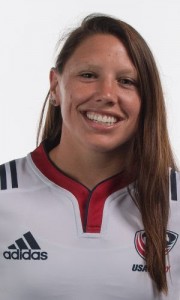Abby will be playing in the 2017 Women’s Rugby World Cup!
 Our very own Abby Gustaitis, who worked in Dr. Carter’s office as medical assistant, has been asked to play in the 2017 Women’s Rugby World Cup! We loved having Abby help us here in the office and we wish her the best in her future rugby and medical endeavors. We are so proud of you Abby!
Our very own Abby Gustaitis, who worked in Dr. Carter’s office as medical assistant, has been asked to play in the 2017 Women’s Rugby World Cup! We loved having Abby help us here in the office and we wish her the best in her future rugby and medical endeavors. We are so proud of you Abby!
For more information about the Women’s Rugby World Cup: https://www.usarugby.org/2017/02/player-pool-announced-for-womens-rugby-world-cup-2017/
Happy 4th of July – The Vbeam Laser is Coming
We have already begun celebrating the 4th of July with the addition of our brand new Vbeam Laser! Dr. Carter is very happy to announce that starting this fall she will be able to treat our patients with the gold standard in laser technology, the Candela Vbeam Perfecta Laser. This technology will be able treat an abundance of concerns, ranging from scars, facial tightening and rejuvenation, unsightly veins, and much more. If you would like more information about the Candela Laser, or would like to schedule a cosmetic consult, please call the office at (202) 363-6844.
Happy Fathers Day!
Fathers Day is this Sunday, June 18th! Dr. Carter and our staff would like to celebrate fatherhood and all of the wonderful fathers in our lives. Take a moment to learn more about the history of fathers day:
http://www.history.com/topics/holidays/fathers-day
Mission Trip!
This month Dr. Carter will be embarking on a medical mission trip to Dakar, Senegal. She and her assistant Swathi have been invited by the local embassy, and will be operating on pediatric cases including repairs of cleft palates, trauma wounds, and conjoined limbs. While in Dakar, Dr. Carter will also be teaching several workshops on breast reconstruction and wound care to local surgeons and students. We are thrilled to be able to offer our services to the Hospital Le Dantec and the Sumassistance Clinic. We very much look forward to working with Dakar’s talented physicians!
Guest Post – Madeleine Brennan on Sunscreen
This week we have been fortunate enough to have high school student Madeleine Brennan assisting us in the office. In addition to shadowing during Dr. Carters’ procedures, Madeleine gave a great presentation on sunscreen that we are happy to share here. Madeleine will soon be graduating from the Potomac School to attend Columbia University majoring in Biomedical Engineering. Congratulations on your upcoming graduation Madeleine, we wish you all the best!
Sunscreen
Presented by Madeleine Brennan, Year 12, Potomac School
The main purpose of sunscreen is to protect the skin against UV radiation from the sun. There are two different types of sunscreen: physical sunscreens and chemical sunscreens. Physical sunscreens reflect UV rays, while chemical sunscreens absorb them.
Sunscreens are measured using SPF, or sun protection factor. SPF measures the fraction of UV radiation that reaches the skin through the sunscreen. For example, a sunscreen rated SPF 15 will allow 1/15th of UV rays to reach the skin.
Regularly wearing sunscreen helps to prevent malignant melanoma, squamous cell carcinoma, and basal cell carcinoma, three types of skin cancer. In addition, sunscreen helps to slow or temporarily prevent the development of wrinkles and sagging skin.
There are two different types of UV radiation: UVA and UVB. UVB radiation has a shorter wage length, which makes it more intense. UV radiation damages the skin’s cellular DNA, which produces genetic mutations that can lead to skin cancer.
UVA radiation makes up 95% of UV waves on earth and is present with relatively equal intensity during daylight hours, regardless of time of day, season, location, and weather. UVA waves travel through both clouds and glass. UVA waves also penetrate both the epidermis and the dermis, the top two layers of skin. They cause tanning and skin cancer.
As opposed to UVA waves, UVB waves barely penetrate the dermis, the second layer of skin. Its intensity varies greatly by season, location, and time of day. UVB waves are the main contributor to skin reddening and sunburns, and they cause skin cancer and tanning.
Since UVB waves cause sunburns, many sunscreens only block UVB waves. However, to help prevent skin cancer and the signs of aging, it is important to use a broad-spectrum sunscreen, which blocks both UVA and UVB radiation.
Sources:
https://www.aad.org/media/stats/prevention-and-care/sunscreen-faqs


